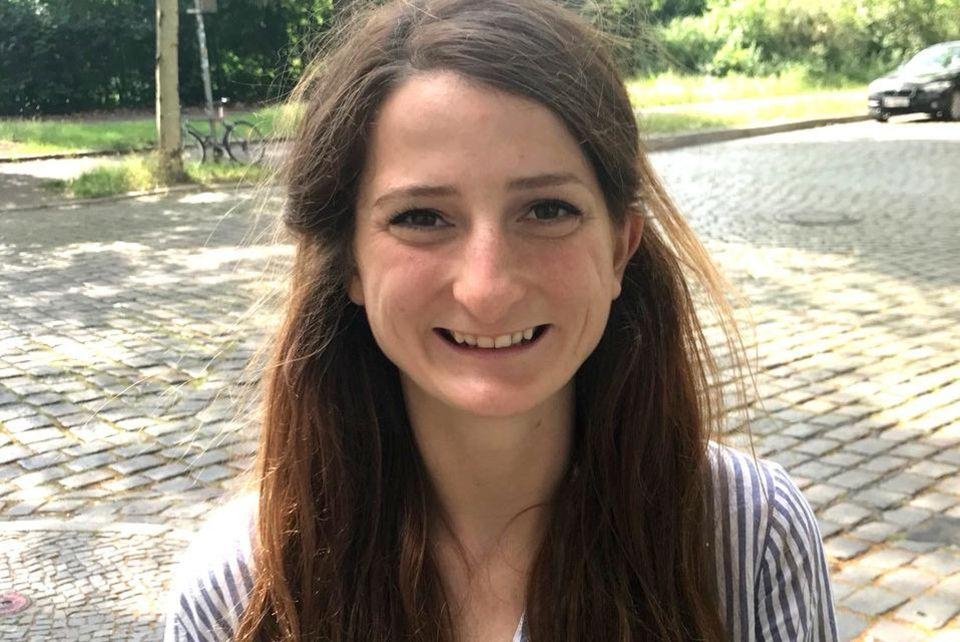Daria Kravets
Wissenschaftliche Mitarbeiterin und Doktorandin
Forschungsinteressen
- Suchmaschinen
- Algorithmic Bias
- künstliche Intelligenz
- computergestützte sozialwissenschaftliche Verfahren und Methoden (Computational Social Sciences)
Titel der Dissertation:
Search Engines as Mediators of Foreign Influence: A Case-Study of Russian News Flows Abroad through the Search Engines Google and Yandex
Lehre:
Automatisierte Datensammlung und Analyse mit R (Kursmaterialien)
Darias CV
Sprechzeiten
- nach Vereinbarung
Seit Oktober 2020
- Wissenschaftliche Mitarbeiterin am Lehrstuhl für Wissenschaftskommunikation bei Prof. Dr. Hannah Schmid-Petri an der Universität Passau
Seit Dezember 2019
- Wissenschaftliche Mitarbeiterin und Doktorandin am Lehrstuhl für Politische Kommunikation mit Schwerpunkt auf Osteuropa und die postsowjetische Region im Rahmen der ERC Consolidator Grant Research Group: „Die Auswirkungen der Digitalisierung auf Russlands informationellen Einfluss im Ausland (RUSINFORM)“ bei Prof. Dr. Florian Töpfl an der Universität Passau
Oktober 2019 bis Januar 2020
- Dozentin für “Web Scraping for Social Sciences" an der Technischen Universität Berlin
Mai 2019 bis November 2019
- Wissenschaftliche Mitarbeiterin in der Emmy Noether-Forschungsgruppe "Mediating (Semi-)Authoritarianism. The Power of the Internet in the post-Soviet World" an der Freien Universität Berlin
2016 bis 2019
- Tutorin für „Einführung in die Kommunikationswissenschaft“ an der Freien Universität Berlin
2016 bis 2019
- Masterstudium in Medien und Politische Kommunikation an der Freien Universität Berlin und an der University of Melbourne, Australien
2015 bis 2019
- Studentische Mitarbeiterin in der Emmy Noether-Forschungsgruppe "Mediating (Semi-)Authoritarianism. The Power of the Internet in the post-Soviet World" an der Freien Universität Berlin
2013 bis 2016
- Bachelorstudium in Publizistik- und Kommunikationswissenschaft sowie Informatik an der Freien Universität Berlin
2023
- Kravets, D., Ryzhova, A., Toepfl, F., & Beseler, A. (2023). Different platforms, different plots? The Kremlin-controlled search engine Yandex as a resource for Russia’s informational influence in Belarus during the COVID-19 pandemic. Journalism. Advanced Online Publication. https://doi.org/10.1177/14648849231157845
- Toepfl, F., Ryzhova, A., Kravets, D., & Beseler, A. (2023). Googling in Russian Abroad: How Kremlin-Affiliated Websites Contribute to the Visibility of COVID-19 Conspiracy Theories in Search Results. International Journal Of Communication, 17, 1126–1146.
https://ijoc.org/index.php/ijoc/article/view/19423/4042
2022
- Toepfl, F., Kravets, D., Ryzhova, A., & Beseler, A. (2022). Who are the plotters behind the pandemic? Comparing Covid-19 conspiracy theories in Google search results across five key target countries of Russia’s foreign communication. Information, Communication & Society, 26(10), 2033-2051. https://doi.org/10.1080/1369118X.2022.2065213
2021
- Kravets, D., & Toepfl, F. (2021). Gauging Reference and Source Bias Over Time: How Russia’s Partially State-Controlled Search Engine Yandex Mediated an Anti-Regime Protest Event. Information, Communication & Society, 25(15), 2207-2223.
https://doi.org/10.1080/1369118X.2021.1933563
2023
- Kravets-Meinke, Daria (2023). "Yandex's Top-5 News Algorithms as a Resource of Russia's Propaganda". Präsentation auf der ZOiS Jahreskonferenz, PechaKucha-Abend am ZOiS, 16. November 2023, Berlin.
- Kravets-Meinke, D., Ryzhova, A. & Toepfl, F. (2023). The Kremlin-Controlled Search Engine Yandex as a Resource for Russia’s Informational Influence in Belarus During the COVID-19 Pandemic. AoIR2023 (2023 Association of Internet Researchers Conference), 18.-21. Oktober 2023, Philadelphia, USA.
- Kravets-Meinke, D. (2023). Auditing Yandex’s Top News Algorithms in Belarus. 9th Annual Conference of the International Journal of Press/Politics, 12.-13. Oktober 2023, Edinburgh, United Kingdom.
2022
Kravets, Daria (May 2022). Search engines as ‘globalizing machines’: International news flow through Google during the 2020 Belarusian election. International Communication Association (ICA) 2022, Paris, France
2021
Kravets, Daria (Jan 2021). Search Engines and Foreign Influence: Google as a Mediator of Russian Influence during the 2020 Belarusian Presidential Election. PolComm Research Workshop REEE-Series. Online.
2019
Kravets, Daria & Töpfl, Florian (Nov 2019). Gauging Content and Precision Bias Over Time: How Russia’s Leading Search Engine Yandex Mediated an Anti-Regime Protest Event. DigiKomm2019 Conference “Automating Communication in the Networked Society: Contexts, Consequences, Critique," Berlin, Germany.
Kravets, Daria & Töpfl, Florian (Apr 2019). Ranking the Past: How Search Engines Construct Memories of Opposition Protests in Authoritarian Russia. 7th International Conference Comparative Media Studies in Today’s World, St. Petersburg, Russia.


